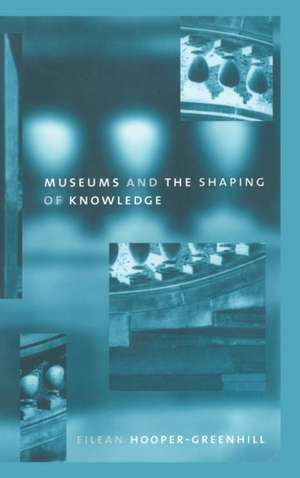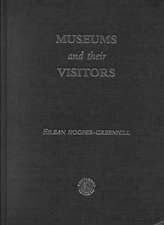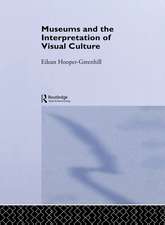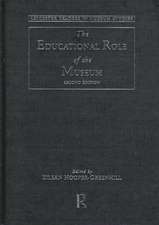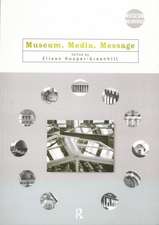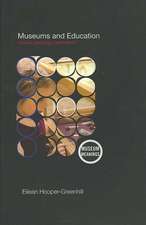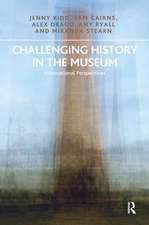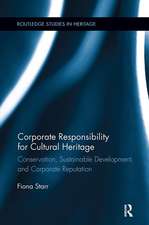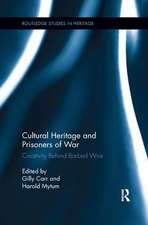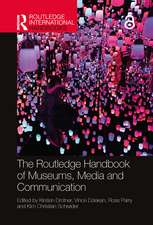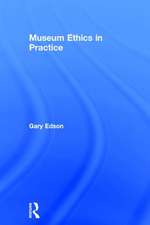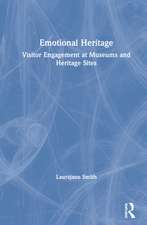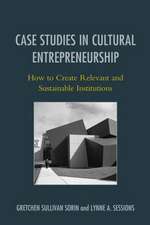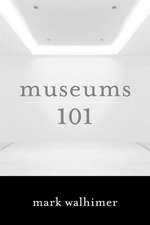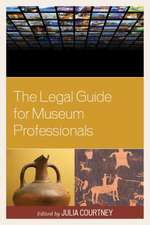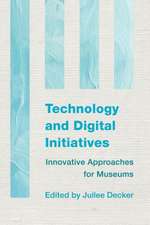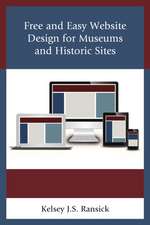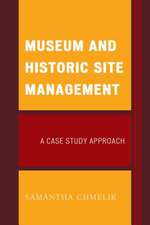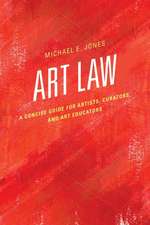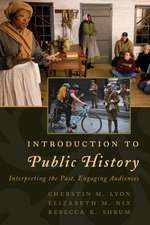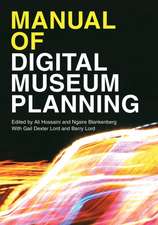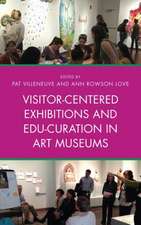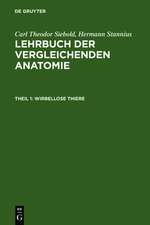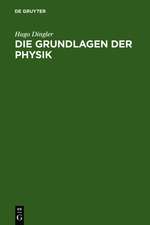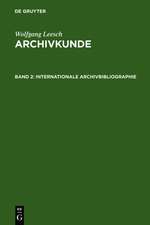Museums and the Shaping of Knowledge
Autor Eileen Hooper Greenhillen Limba Engleză Hardback – 2 noi 2015
| Toate formatele și edițiile | Preț | Express |
|---|---|---|
| Paperback (1) | 325.72 lei 6-8 săpt. | |
| Taylor & Francis – 23 ian 1992 | 325.72 lei 6-8 săpt. | |
| Hardback (1) | 1000.27 lei 6-8 săpt. | |
| Taylor & Francis – 2 noi 2015 | 1000.27 lei 6-8 săpt. |
Preț: 1000.27 lei
Preț vechi: 1219.84 lei
-18% Nou
Puncte Express: 1500
Preț estimativ în valută:
191.40€ • 199.84$ • 158.41£
191.40€ • 199.84$ • 158.41£
Carte tipărită la comandă
Livrare economică 05-19 aprilie
Preluare comenzi: 021 569.72.76
Specificații
ISBN-13: 9781138168558
ISBN-10: 1138168556
Pagini: 244
Dimensiuni: 156 x 234 x 14 mm
Greutate: 0.45 kg
Ediția:1
Editura: Taylor & Francis
Colecția Routledge
Locul publicării:Oxford, United Kingdom
ISBN-10: 1138168556
Pagini: 244
Dimensiuni: 156 x 234 x 14 mm
Greutate: 0.45 kg
Ediția:1
Editura: Taylor & Francis
Colecția Routledge
Locul publicării:Oxford, United Kingdom
Cuprins
Chapter 1 What is a museum?; Chapter 2 The first museum of Europe?; Chapter 3 The palace of the prince; Chapter 4 The irrational cabinet; Chapter 5 The ‘cabinet of the world’; Chapter 6 The Repository of the Royal Society; Chapter 7 The disciplinary museum; Chapter 8 A useful past for the present;
Notă biografică
Eilean Hooper-Greenhill is Lecturer in Museum Studies at the University of Leicester.
Descriere
Museums have been active in shaping knowledge over the last six hundred years. Yet what is their function within today's society? At the present time, when funding is becoming increasingly scarce, difficult questions are being asked about the justification of museums. Museums and the Shaping of Knowledge presents a critical survey of major changes in current assumptions about the nature of museums. Through the examination of case studies, Eilean Hooper-Greenhill reveals a variety of different roles for museums in the production and shaping of knowledge. Today, museums are once again organising their spaces and collections to present themselves as environments for experimental and self-directed learning.
